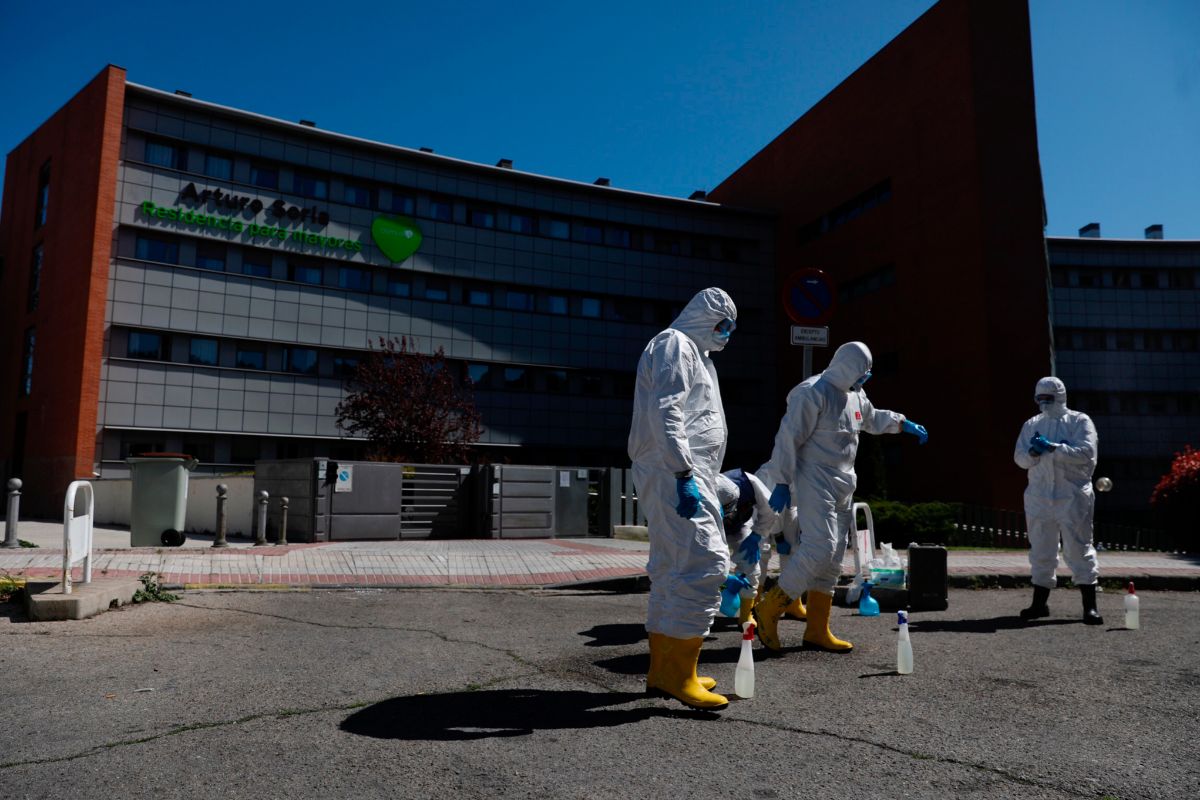- Live: last minute of the coronavirus
- Luis Martínez Meijide, head of the UME. "We do not understand autonomous communities, we understand localities and people"
“The disaffection of the humble classes of our society towards the armed organisms dates back a long time. This disaffection has, to a certain extent, a justification, since it was always they who on a larger scale contributed to satisfying the tribute of blood during the continuous and not infrequently non-violent wars; those that most directly suffered the ravages of the excesses of the soldiery in march or parking; the first to touch the painful consequences of the defeats, without the benefits of the victories reaching them in any case ».
The text that opens these lines is not signed by any revolutionary or anti-system ideologue, or at least not in the conventional interpretation of that word. It was written about a century ago, by the way, with his not inconsiderable prose, by someone who wore a uniform and who, paradoxically, would end up contributing with his performance to further increase the disaffection he refers to and tries to investigate and explain: Emilio Mola Vidal , who would be the brain of the 1936 military rebellion against the Republic.
Anti-militarism in Spain undoubtedly has deep roots, and some other historical reason, of which Mola himself is a good example. However, in those same years there was already another class of military, usually ignored and forgotten . If Mola and a few of his comrades in Africa rose up in arms against democratic legality, there were many others, such as generals Miaja or Pozas, who defended it. Some even lost their lives for doing so: Núñez de Prado, Batet or the head of the Civil Guard in Catalonia, General Aranguren.
In any case, more than 80 years have passed since then, and under the bridges not only has the water flowed, but also the air, as through Spanish society. Among other things, compulsory military service has disappeared, which has exempted citizens from a poorly designed benefit and that caused understandable discontent , although it is doubtful whether its removal has not eroded the notion that the Spanish have that the community, as we are seeing these days, it is something for whose defense we all have the duty to assume some sacrifice, which could well be implemented in some more rational way, and certainly without weapons in hand for those who object to them.
On the other hand, the Armed Forces, like the Corps and Security Forces, including the one that retains its military character, have proven throughout these more than 40 years of democracy an irreproachable loyalty and obedience to the legally constituted powers . Outside of the bizarre and failed 23-F incident, they have done as instructed, have even gone to war when they were decided to go, and when they have been withdrawn they have returned quickly and without question, enduring in silence and without protests the corresponding tribute: a hundred fatalities in Afghanistan alone , plus the wounded, affected by traumatic experiences or the invisible toll of families who live the anguish of having a mother or father -or a daughter or a son- in a place where bullets whistle and mines explode. And when a catastrophe strikes us , it doesn't matter if it's a fire or a flood, there are the first ones, without asking why or when their service begins or ends.
We are now living, no doubt, a catastrophe. And once again, they are there, on the front line, without haggling over their efforts and going where they are sent, which are, of course, the worst places, including those nursing homes where the black hole and ground zero of our cataclysm are Present. In their performance they display the values that were always the militia, we attest to those who have had military personnel at home, and which have not only been valid before, in war and in peace, but are always valid, especially when As today they are badly given: discipline, camaraderie, sacrifice . Or if someone is more comfortable giving them their civil names: rigor, solidarity, dedication.
That there are still people out there who, due to an identity itch or an ideological fuss, refuse to call them, when it becomes evident that they are in need of their abilities, and even so their citizens are demanding it, is an anachronism that is already tiring. And in the current circumstances, a moral smallness of which some day, not now, that we can and should only think of those who suffer, will have to render embarrassing accounts.
According to the criteria of The Trust Project
Know more- Covid 19
- Coronavirus
- Infectious diseases
- Respiratory diseases
- Spain
BoulevardThe coronavirus dance
Leafing / SappingCebrián reminds us of the Cebrián of 1970
AnalysisA 'war' against the virus that can infect democracy

